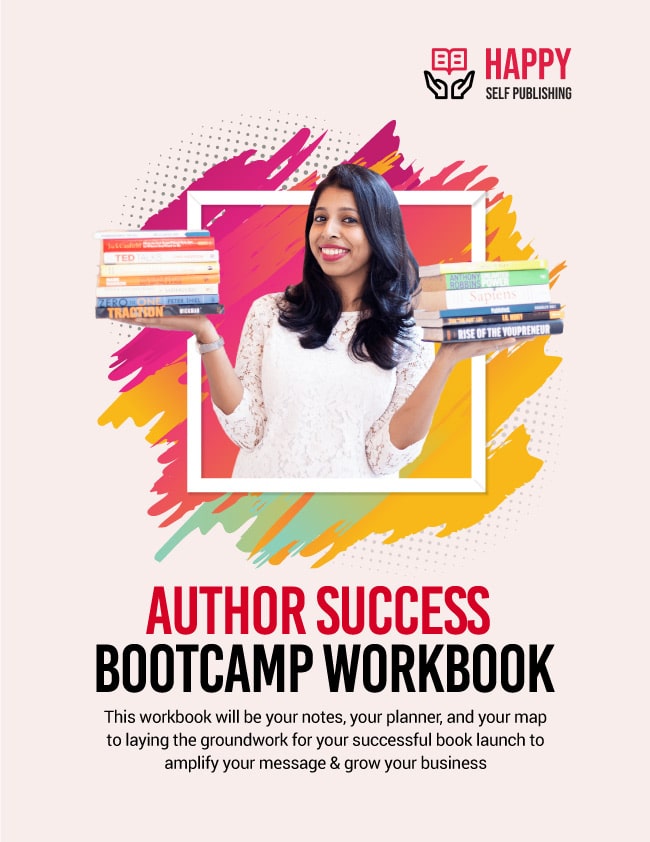Hoping to self publish a book but short on funds? You’re not alone. From sourcing a great cover design to editing your book, formatting it and setting up the strategy required to market it, self publishing costs can easily add up – especially with everything else going on at any given moment in our lives!
We’ve previously written about how partnerships can lower your publishing costs, but after having interviewed bestselling author Tom Morkes for our podcast, we knew that a blog post about book crowdfunding would be of benefit to first-time or veteran authors hoping to find additional income sources, too.
That being said, authors typically run crowdfunding campaigns for their books to generate income and revenue streams from their pre-existing audience. It’s important to note that these types of campaigns are generally ineffective unless authors already have an engaged audience or group of followers that will be inclined to purchase from them. In other words, if you haven’t amassed an e-mail list of actionable leads or grown your online community in some sort of meaningful way, crowdfunding likely won’t work for you.
While there’s no magic number in terms of how many leads you should have before running a crowdfunding campaign for your book, generally 1000 or 2000 actively engaged contacts is a good number to start with. The total amount doesn’t typically matter so much as whether or not your audience follows you closely or is interested in purchasing your products. In order to reap the benefits of a crowdfunding campaign, these leads have to ultimately be listening to what you have to say. You could have an e-mail contact list of 15,000 people, but if you don’t foresee them wanting to buy your book, your crowdfunding campaign will ultimately fall short.
How crowdfunding campaigns differ from listing a book for pre-order on Amazon
Think of crowdfunding as an event – participants get excited about contributing to a goal and about helping you accomplish what you set out to do. When listing your book on Amazon for pre-order, your audience doesn’t really get the sense that they’ve helped “make” the book happen. As well, successful crowdfunding campaigns typically offer your followers more than just the opportunity to finance a book’s creation. From special bonuses to exclusive giveaways for those who purchase, make your audience feel appreciated by pitching in a few extras.
The various types of bonuses to add to your crowdfunding campaigns
1. Services
Consider offering your services or bundles of your services to those who fund your book. Set monetary goals that they can choose from and then tailor the package you offer accordingly. For instance, for each person who donates $150, they receive an hour of coaching from you via Skype. This enables you to provide a service that you know you can deliver on (and maybe also turn the crowdfunder into a repeat client!).
2. Reward tiers
Acknowledge somebody as a sponsor each time they donate $400, or recommend them on your website, send out a tweet about their business to your audience and so on if they donate $500. Reward tiers entice crowdfunding donors to become increasingly generous and can create lasting business connections as an added bonus. Think outside of the box for ideas on how to draw people in.
3. Interview features
If your donor’s line of work or personal history is relevant to your book, consider setting goals where they can opt to be featured in or interviewed for your book. This will prompt those who are looking for alternative exposure outlets to participate and can once again build lasting business connections.
4. Resource guides, free courses and more
While you should already be giving out complimentary resource guides or discounts on your services to those who crowdfund your book, consider adding in something extra like a free mini course or access to a live private webinar.
When coming up with ideas for your bonuses, the ultimate goal is to get people excited while also making them feel like they’re being given several extras in return as a sign of your gratitude for their donations.
The best platforms for book crowdfunding campaigns
Publishizer, Kickstarter, and Indiegogo are our top three platform picks for running a book crowdfunding campaign, but choosing one comes down to a matter of preference. Note that people won’t find your campaigns simply because they’re being hosted on a popular platform – much like selling on Amazon, you have to market your campaign and drive your audience to these sites accordingly.
While Kickstarter will only release your funds if you’ve hit your target, Indiegogo offers flex-funding. Meanwhile, Publishizer is used specifically for books and allows publishers to compete with each other to offer authors publishing deals. This makes Publishizer very unique and a preferred platform for authors who want to connect with publishers. We are excited about our recent collaboration with Publishizer. As we have been featured as a publisher on their site, authors get an opportunity to work with us using the money they’ve raised during the crowdfunding campaign. Isn’t that a win-win deal?
What to do after you’ve reached your campaign goal
Congrats! You’ve hit or exceeded your crowdfunding campaign’s target. So what happens next? Well, to put it simply…it’s time to deliver. Finalize the book and make it even better than anybody could have anticipated. If you’ve promised rewards or bonuses to your donors, make good on your word.
Be conservative with your timeline in terms of what you’ve promised. If you’ve given away 20 hours of free coaching, make sure you can fit that time into your busy schedule. Publish the book in 9 months if what’s what you mentioned during your campaign. Understandably, things can get in the way of our goals in life – if that’s the case, stay in constant communication with your donors and update them on your book’s progress every month or every few weeks.
Finally, once you’ve finished your book and delivered on your bonuses – host an epic book launch! Treat it like a unique event. Just because you’ve hosted a crowdfunding campaign, that doesn’t mean you can’t do something fun and exciting for your book’s actual launch.
How to price your crowdfunded book on Amazon
Lastly, a post about crowdfunding a book wouldn’t be complete without highlighting the fact that you’ll inevitably be selling it for less than what your donors paid. This is a tricky facet of crowdfunding and one that you should approach delicately.
If your donors paid a minimum of $20 for your book, don’t drop its price to $10 on Amazon right after you’ve launched. Allot a reasonable lag time between your initial launch and subsequent Amazon price dropping.
Alternatively, for those planning to lower the price right away, make sure to deliver immense value during the initial crowdfunding campaign so that donors feel valued when they do come across your book’s discounted price. If they received access to a free online course and a signed hardcover copy of the book in the mail, that $10 discrepancy likely won’t matter.







